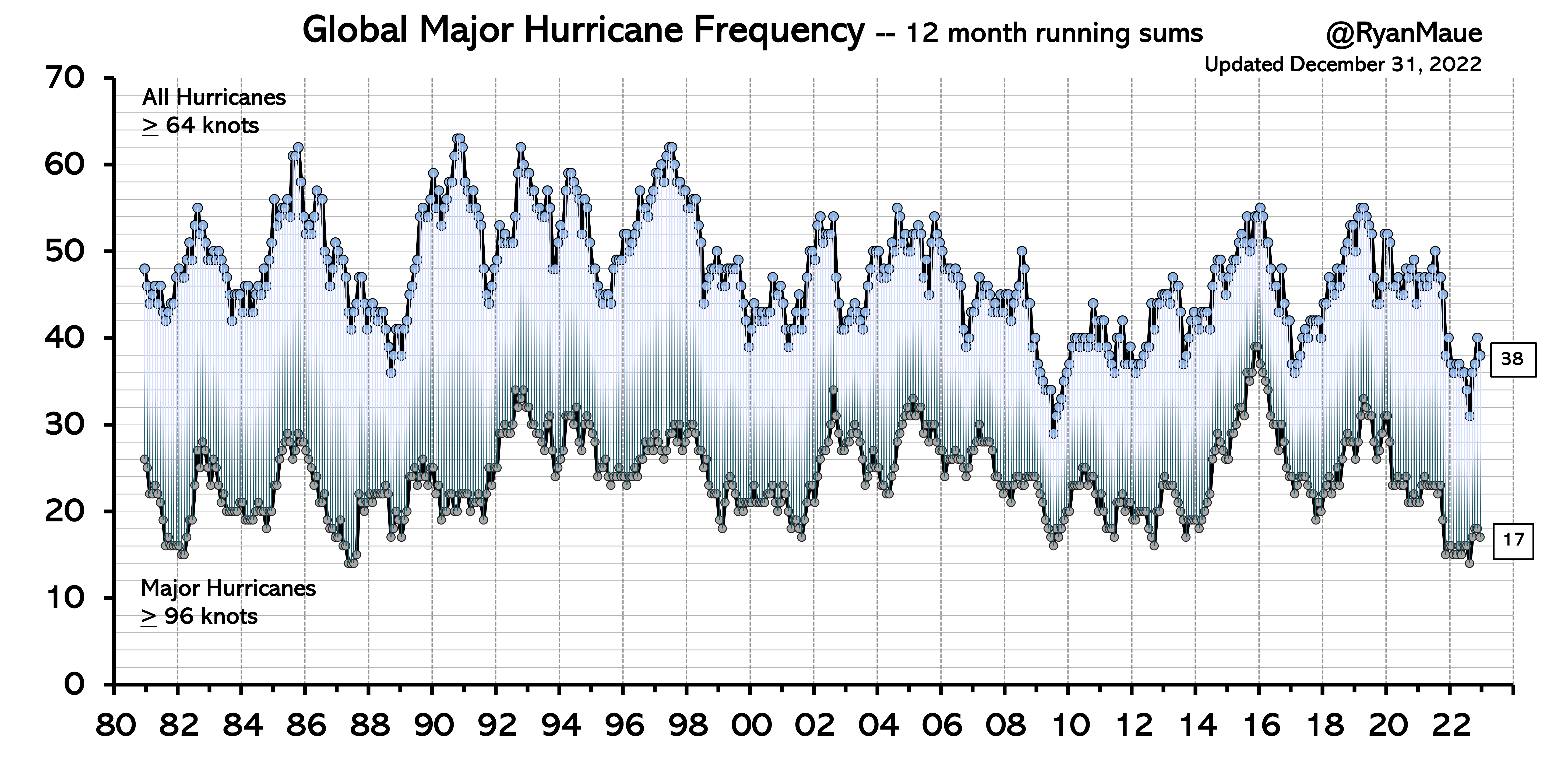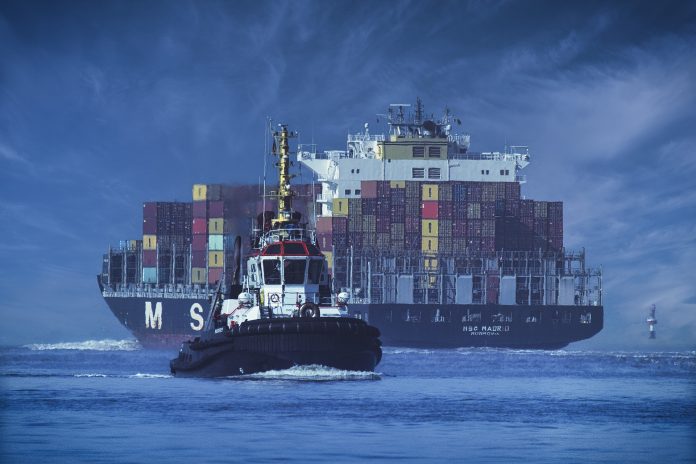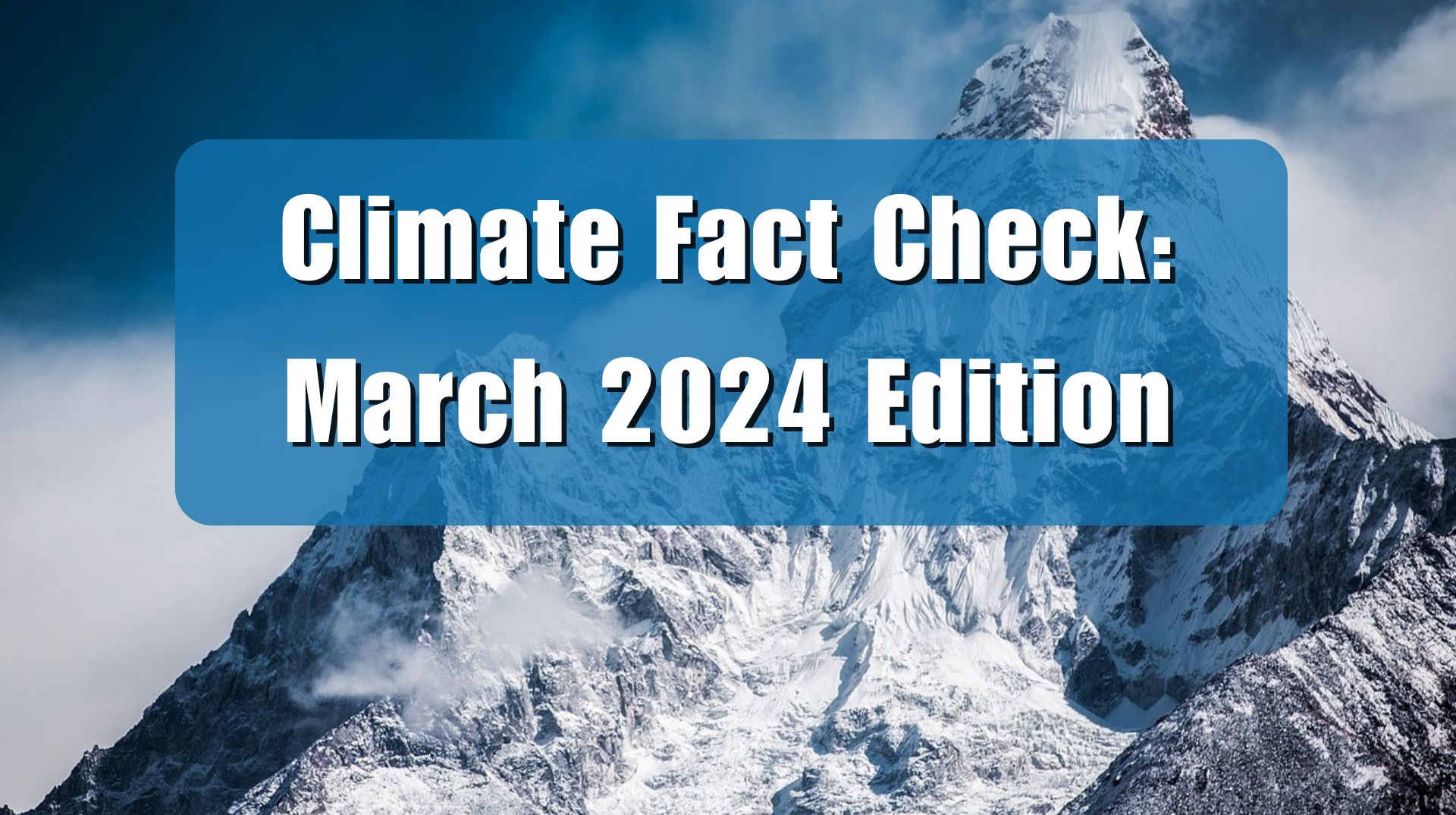A recent Forbes article, written by weather “risk communicator” and meteorologist Renny Vendewege, claims that extreme weather and climate change are forcing the International Maritime Organization (IMO) to develop new shipping industry standards. This is false. While IMO may be responding to climate alarmist prognostications on future climate catastrophes, there is no available data showing weather is posing a greater threat to shipping now than in years past. It makes sense for IMO to encourage efficiency in energy use and travel routes, but such goals make sense regardless of climate change.
The article, “Extreme Weather, Climate Change Driving New IMO Shipping Regulations,” seems to just take it for granted that sea surface temperatures are leading to more extreme weather.
Vendewege writes:
Extreme weather resulting from warming ocean temperatures are becoming a top challenge for shipping industry executives. While the extreme weather can influence port activity and result in lost or damaged cargo, the environmental impact of shipping on the ocean temperatures cannot be ignored. With more than 55,000 merchant ships that trade internationally, maritime shipping accounting for about 3 percent of all global CO2 emissions. For most companies, supply chains typically have the biggest environmental impact of any part of a business, and beginning this year, there are two new regulations designed to make the shipping industry more environmentally friendly.
Tellingly, Vendewege neglects to give any specifics or data backing up the idea that there is any “extreme weather resulting from warming ocean temperatures,” he merely asserts that it is the case, and moves on to discussing the new rules and their energy efficiency benefits.
A number of conditions can pose a threat to shipping, like hurricanes and rising seas impacting seaports.
Looking at the data for hurricanes, as Climate Realism has dozens of times, here, here, and here, just taking a small sample, one finds no increasing trend of hurricane frequency or severity worldwide.

The most recent hurricane season in 2022 ended at a 42 year low, which, while not necessarily indicative of a trend in itself, certainly does not further the “worsening hurricanes” narrative implied by the story. So if hurricanes aren’t getting stronger or becoming more frequent, then changes in hurricanes can’t be used to justify new shipping rules.
Sea levels, another factor that may affect shipping ports over time, have not seen significant acceleration since records began. Sea levels are rising on average, but have been since the mid-1800s at least. On average, this rate is around 1.2 inches per decade, which is hardly anything like a rapid inundation that can’t be prepared for or mitigated. So dangers to ports from rising sea can’t be used to justify new shipping rules.
Venderwege discusses the new route optimization standards, describing how they might help ships avoid bad weather, but this is not at all new to seafarers. The shipping industry already use weather data to plan ahead, Forbes itself reported that private weather forecasting was a growing, already $7 billion industry in 2017, giving tailored forecasts to various industries. Any improvements are more than welcome, but are not proof that climate change is impacting shipping.
It is absolutely a good idea to improve the fuel efficiency of seagoing vessels, and keep up their maintenance to best ensure vessels’ seaworthiness. It also makes good business sense to plan routes to avoid bad weather to the extent it can be anticipated, and to find the most efficient, direct, and speedy routes to ports of call, but Forbes’ headline and climate-focused theme of the piece makes these ideas out to be some kind of response to current worsening conditions at sea—which are nowhere to be found. Forbes looks pretty foolish when they try to tie everything to climate, instead of focusing on the real, tangible benefits of IMO’s new rules.



















